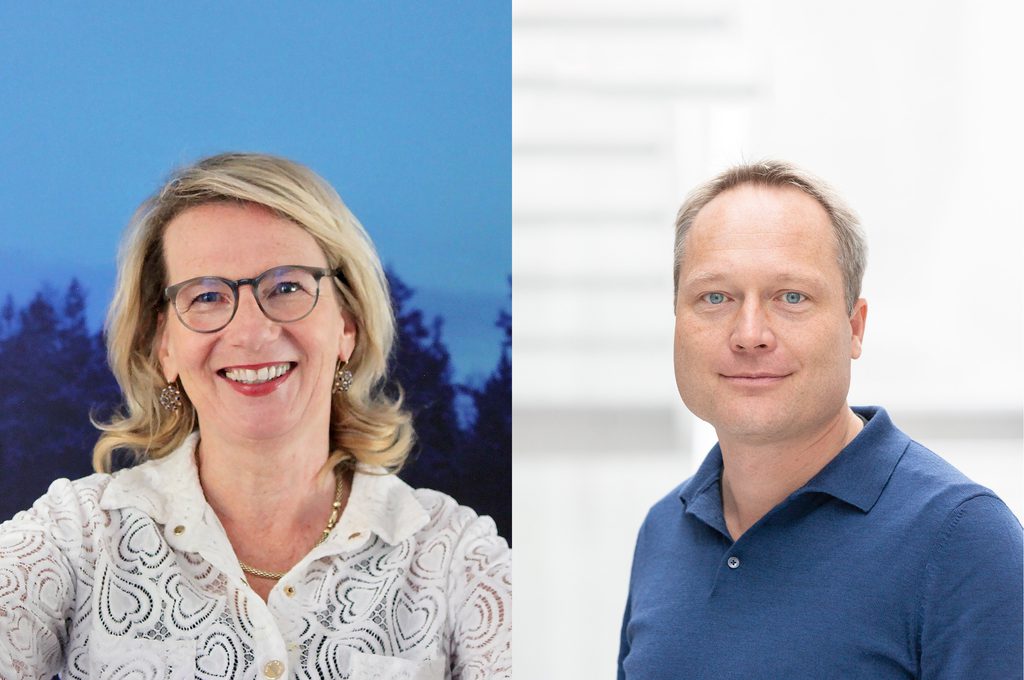cepezed's kit of parts architecture turns out to be quite future-proof, but does the same apply to our corporate culture? Ronald Schleurholts (partner of cepezed) spoke with researcher and consultant Esther Mollema about the ideal team composition and dealing with differences.
Esther: 'Who are you celebrating this 50th anniversary with?'
Ronald: 'Mainly with each other, although there will also be a party with invited guests and we will share our 'anniversary findings' on a public website. As part of the anniversary, we are examining the future - of architecture, but also of the corporate culture. Is our team diverse enough to cope with the future?, is one of our questions.'
Esther: 'Future-proofing starts with the willingness to continuously improve your organisation. This concerns the quality of management and employees, but also an open atmosphere, in which you can question the status quo. Is there psychological safety and willingness to take action? A good manager has a coaching attitude and can make quick decisions. Good employees are flexible and willing to cooperate.'
Ronald: 'Does the size of an agency have any influence on this?'
Esther: 'Actually, no. No matter how big an organisation is, the culture is determined by the managers. Your behaviour is contagious, so to say. If the organisation gets that big that distance is created, think about your behaviour.'
Ronald: 'We have recently started organising roundtable discussions, where partners do not participate in discussions, only listen. The idea is to build a bridge this way, but maybe this is too artificial?'
Esther: 'No, this is very good! It is important to show that you have heard people though. You can ask further questions afterwards and you have to say what you will do with the outcome, not everyone automatically understands that. But it shouldnt be a messy meeting! It's about reflection, everyone can say something, but you, the partners, make the decisions.'
Ronald: 'I sometimes have the idea that the expectations of employees and the best way to manage this differ from generation to generation.'
Esther: 'I often get questions about Generation Z. These people have been brought up with compliments. They have a tremendous need to talk to you and, when they are new, expect you to inquire whether they like it or not in a weeks time. Whereas when we were young, that might have happened after six months.'
Ronald: 'Is this really a culture change? You have more and less driven people in every generation, don't you? And each generation considers the next one completely different.'
Esther: 'This is definitely a culture change. Parents are spending more time with their children, schools have moved away from punishment, and towards complimenting. Generation Z has fewer setbacks. These people are all about making small dreams come true and less about commitment. Their ambition lies with things that are near. Nowadays, you see companies offering all kinds of small promotions just to hold on to their employees. Because this generation will quit if it doesn't get what it wants. Very different from my father, who shouted 'who ever told you that work is fun' when my first job turned out as a disappointment. After which I continued to work there, unhappily, for two more years. The funny thing is, the interaction moments demanded by Generation Z are actually desirable for everyone.'
'Don't get stuck in your own truth'


Ronald: 'In any case, there is a nice balance of ages within our team. That does not apply to the male-female ratio, there are significantly more men working at our office than women.'
Esther: 'While the proportion of women studying architecture is quite high.'
Ronald: 'That's the crazy thing, previously the ratio at university was fifty-fifty, nowadays women are even in the majority. Maybe our designs are too technical?'
Esther: 'It is important to find out where exactly things go wrong. Are there unconscious biases? Is it the image of the agency? Do fewer women respond to vacancies or do you think you turn them down? What does the vacancy text say? What channels do you choose to approach people, are you fishing in your own pond? Who conducts the job interview, is it two men? If women leave after a while, it could be due to who supervises them, or a lack of women in senior positions. They are an example, the possibility of that position should be visible for younger women.'
Ronald: 'We haven't looked at it this way yet. It would be good to review these questions thoroughly.'
Esther: 'It can be quite exciting to put your finger on the sore spot. If you really want to change something, you can choose to give internships specifically to women, or only hire women for the next two years. You won't loose the men by doing so. Just take that pain, the sooner you will be the organisation of the future. All studies show that a diverse organisation is a more creative one. And before diversity comes inclusion. That's about working together, understanding each other, not staying in your own truth. This affects joint performance enormously; more creativity means more productivity. It is a matter of policy, of future vision. This includes, for instance, whether you want to be an international company and what that means for the working language within the company. And it's about cultural diversity, which also increases creativity. Moreover, diversity is good for customer loyalty. Because a diverse team hears different things, and therefore hears more, the customer feels completely seen.'
Ronald: 'We are under the illusion that we don't differentiate who we hire. Doesn't the process get very complicated if everything - gender, age, cultural background - has to be balanced?'
Esther: 'A numerical approach is, of course, death in the pot. Before an application round, name the qualities that are needed anyway, no more than five. Then see if an applicant brings diversity to the team, or a different perspective. Remember that it is no fun working in an organisation where you are always in the minority. Below 30 per cent, you have no choice but to conform to the organisation's norm, research shows.'
Ronald: 'So you conform to the company culture and when it is further away from you, you lose a piece of yourself?'
Esther: 'If you don't want to lose your individuality, you have to actively do something for it. That takes energy, just like constantly adapting for that matter. This makes it very difficult to still be brilliant.'
Ronald Schleurholts is architect and partner at cepezed
Esther Mollema is an expert in high performance leadership (HPO), diversity & inclusion, and unconscious bias
→ go back to the overview
→ Mail bd@cepezed.nl or call our business development team on +31 (0)15 2150000